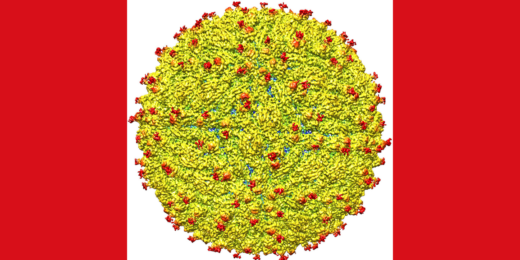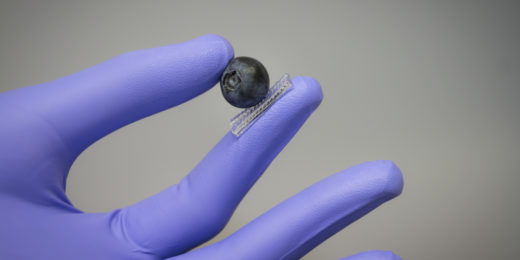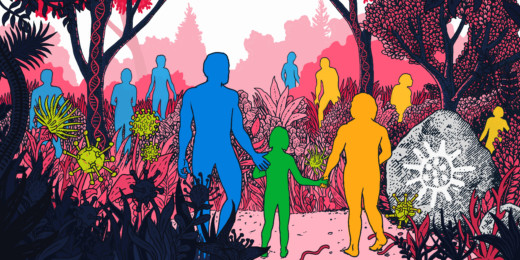Doctors are trying to solve the mysteries surrounding the health of famous artists such as Leonardo da Vinci by examining their art.
Author: Jennifer Huber
Translating horror into justice: Stanford psychiatrist advocates for human rights
A Stanford interdisciplinary program provides evidence of the mental health pathology caused by trauma to legal teams prosecuting human rights violators.
Medical professional in the family? That may boost your health
Is there a doctor in the house? Stanford study finds having a medical professional in your family is good for your health.
“The brain is just so amazing:” New Instagram video series explains neuroscience
A Stanford neurobiologist takes on the challenge of explaining neuroscience in a series of brief videos on Instagram, five a week for an entire year.
Blocking Zika: New antiviral may treat and prevent infection, a Stanford study suggests
A Stanford study shows Hsp70 protein inhibitors can protect mice from Zika virus without developing drug resistance, demonstrating their clinical potential.
How yellow fever shaped 19th-century New Orleans: A Q&A
A Stanford historian explains how frequent yellow fever epidemics in 19-century Louisiana generated cultural and social norms in its fatal wake.
A look back at the military’s influence on nutrition in the U.S.
Stanford historian reveals how the U.S. military profoundly shaped modern American nutrition during World War II and the Cold War.
Blood test may detect early signs of lung-transplant rejection
A new blood test measures the DNA fragments of lung transplant donors in the blood of recipients, in hopes of preventing organ rejection and saving lives.
On the importance of including pregnant women in clinical trials: A Q&A
A Stanford physician argues pregnant women should be appropriately included in clinical research to improve their health and the health of their fetuses.
Jamming with the Midnight Rounds: A Q&A
Pediatric surgeon Matias Bruzoni discusses the band Midnight Rounds and the relationship between music and medicine for patients and health care providers.
Medical students turn to peer-support groups for assistance: A Q&A
A Stanford psychiatry resident discusses the peer-to-peer support programs available to Stanford’s medical students, which she helped create.
Blasting radiation therapy into the future: New systems may improve cancer treatment
Stanford and SLAC researchers are developing new technology to dramatically reduce the duration of radiation therapy and its treatment side effects.
Sensors could provide dexterity to robots, with potential surgical applications
Stanford researchers have develop an electronic glove that allows a robotic hand to dexterously handle delicate objects like blueberries or ping-pong balls.
How does media multitasking affect the mind?
A new review article investigates the relationship between heavy media multitasking and cognition to determine how media use is shaping our minds and brains.
A look at the cigarette epidemic in China
A new book by Stanford researchersexamines China’s cigarette industry to understand the root causes of our global cigarette epidemic.
Inherited Neanderthal genes protect us against viruses, study shows
Stanford scientists have found that viral infections shaped human genome evolution after interbreeding with Neanderthals 50,000 years ago.















